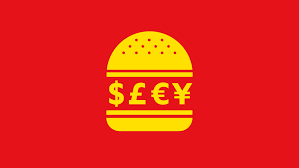
Are you watching Squid Game? That seems to be all anyone is asking one another! Since it landed on Netflix on September 17, the show has captured the global imagination that it could soon be the most-ever watched original production in the history of the streaming platform.
While outsiders principally know the South Korean media outlet for its prolific churn of perky K-Pop, a bunch of Korean movies and TV series have likewise accumulated worldwide attention lately. The country’s cinematic exports skew much darker, dealing directly and allegorically with the grim realities of life under capitalism in Korea.
Korea’s outrageous economic imbalance is Squid Game’s central subject. In the show, a group of bankrupt contestants compete in a variety of children’s games, from Red Light, Green Light to the conventional Korean “ppopgi”, for a chance at 38 billion Korean Republic Won. There’s just one catch – each game is played to the death. Players who fail are killed on the spot, the risk of elimination heightening with each round. Each time a player is killed, extra money is added to the prize pot, displayed in the form of a giant levitating piggy bank in the middle of the players’ dormitory.
Meanwhile, a gathering of wealthy elites notice and take pleasure in the players’ hopeless endeavours to win the prize cash. They bet on the players’ lives just as the show’s hero, Gi-hun, once gambled his way into life-ruining debt – a creative illustration of how society under capitalism operates by two sets of rules, one for the rich and another for the poor.
In episode 2 of Squid Game, the characters return to their regular day to day lives subsequent to casting a vote to stop the game in the pilot episode – but the strenuous conditions of their lives in crushing debt inescapably allure them back. If they are going to suffer under capitalism regardless, they may as well try their hand at the life-changing prize promised by the game. Evoking the inescapable nature of Hell Joseon (aterm used to criticize the socioeconomic situation in South Korea), the episode is titled “Hell.”
Squid Game focuses on Gi-hun, whose gambling addiction and joblessness have left him both broke and beheld. He jumps into the games in hopes of winning enough money to pay for his dying mother’s medical bills, and to provide for his daughter in an attempt to keep her from moving to the United States with her mother. As the series progresses, it’s revealed that Gi-hun’s initial financial troubles trace back to the loss of his job ten years prior. In flashbacks, we discover that after Gi-hun and a group of his co-workers were laid off,he and his fellow union members barricaded themselves inside the Dragon Motors warehouse overnight. Strikebreakers busted down the doors, beating striking workers with batons. The strike breakers beat Gi-hun’s co-worker to death before his eyes. As this scene of violent labour repression unfolds, Gi-hun misses the birth of his daughter.
We also notice a similar scenario with Abdul Ali in this series. Ali Abdul is a Pakistani migrant worker who moves to South Korea to make enough money to support his family. When he fails to do so and his boss refuses to pay him due to racial discrimination, he takes his chance and participates in the games.
South Korea has a long and continuous history of anti-labour practices, often extreme and sometimes violent. Just last month, the president of the country’s largest labour union confederation, the Korean Confederation of Trade Unions (KCTU), was arrested and imprisoned on the pretext of violating COVID-19 safety regulations at a labour rally in Seoul. In all likelihood, he was targeted for exhibiting a degree of labour militancy that disconcerted the government. He is the thirteenth president of the KCTU in a row to be jailed.
Additionally, in Squid Game episode 4, “A Fair World,” a player is caught cheating. He and his co-conspirators are immediately executed. The front man then gives a ferventspeech portraying the process as a meritocracy, and himself as a generous provider of opportunity. “These people suffered from inequality and discrimination out in the real world,” he says, “and we’re giving them one last chance to fight fair and win.”
While perhaps universal in capitalist societies, the ideal of meritocracy has particular resonances in Korean culture, tracing back to ideologies. The idea that hard work will pay off remains a common slogan in Korea, even as more and more young Koreans who followed the straight and narrow path of the highly competitive Korean education system are met with unemployment, chaebol domination, and inequality.





Leave a comment